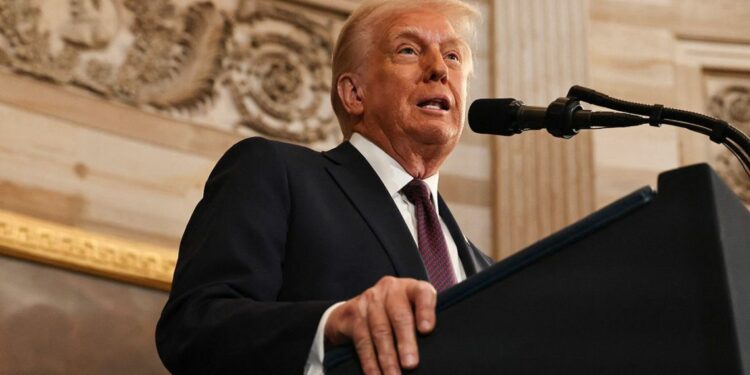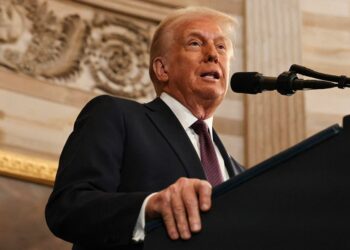Taking questions from members of the press as he signed his first executive orders as the 47th president of the United States of America, Donald Trump was asked about his relationship with Latin America.
His answer, as he scrawled his signature on official documents authorising sweeping new measures, was blunt, to the point.
“Great. They need us much more than we need them. We don’t need them. They need us – everybody needs us,” said Trump, freshly installed in the Oval Office of the White House.
The forthright response and transactional style is no surprise, but it hardly be music to the ears of leaders across Latin America. Not that many of them at present are fans of the Republican leader, given their respective political leanings.
In Argentina, where President Javier Milei leads the government most aligned with Trump, the remarks were played down. Casa Rosada sources stated they were “not concerned” by them, given Milei’s relationship with the US president, and that they would “not affect” the relationship between Buenos Aires and Wahsington, nor future prospects.
Nevertheless, Trump’s transactional response underlines the approach that his administration will adopt in its relations with the nations to its south, not least in Panama, given the Republican leader’s vow in his inaugural speech to “take back” the Panama Canal.
The interoceanic channel has been under Panamanian administration since 1999, but Trump intends to reverse that historic decision. Panama’s President José Raúl Mulino took little time to respond: “The canal is and will remain Panamanian.”
Some analysts this week have suggested the remarks – along with another Trump vow to restore US “sovereignty,” seek control of Greenland and launch a space mission with Elon Musk’s SpaceX to the planet Mars – indicate a resurrection of the Monroe Doctrine and ambitions of ‘Manifest Destiny’-style expansionism.
The attempt to reclaim control of the Panama Canal, along with this week’s symbolic renaming of the Gulf of Mexico (now to be renamed the “Gulf of America”), would seem to hint at such tendencies.
Other analysts, citing the threat of huge Trump tariffs on foreign goods, say the approach will lean towards the adoption of a Roosevelt-style ‘big stick’ approach to Latin America.
Along with Panama, the main recipients are likely to be neighbouring Mexico, any nation with ties to drug and people-trafficking networks and Trump’s main three ideological antagonists in the region: Nicolás Maduro in Venezuela, Daniel Ortega in Nicaragua and Miguel Díaz Canel in Cuba.
What is clear is that Trump intends to waste little time in making his moves. Already, he has restored Cuba to a blacklist of state sponsors of terrorism, began listing foreign drug-cartels from Venezuela (Tren de Aragua) and El Salvador (MS-13) as “foreign terrorist organisations,” launched an attempt to endright birthright citizenship, sent the military to the southern border to tackle illegal immigration and pulled the US out of the Paris climate accords and the World Health Organization.
Although he presented himself as a president who will be remembered for being a “peacemaker and unifier” in his inaugural address, most leaders in Latin America are unlikely to perceive Trump as such in the immediate future.
related news
Source link : http://www.bing.com/news/apiclick.aspx?ref=FexRss&aid=&tid=6790fed87f16474bb6c64cbe6fd3fe7e&url=https%3A%2F%2Fwww.batimes.com.ar%2Fnews%2Flatin-america%2Ftrump-on-latin-america-we-dont-need-them-they-need-us.phtml&c=18063019961780968630&mkt=en-us
Author :
Publish date : 2025-01-22 01:11:00
Copyright for syndicated content belongs to the linked Source.







